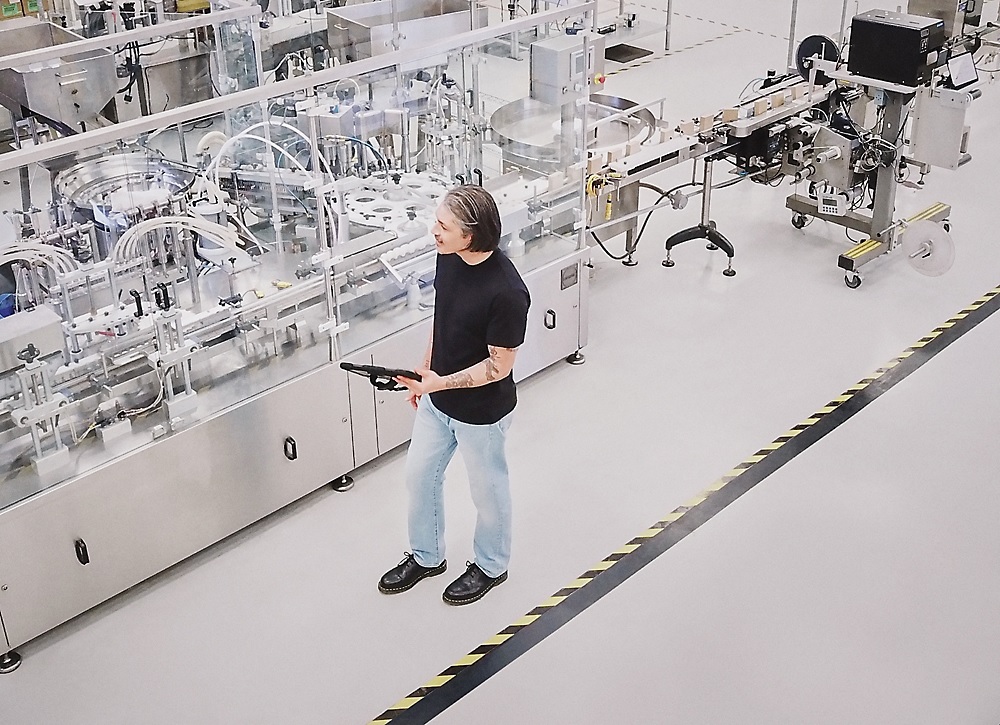The Ever-Evolving Landscape of Industry: A Pillar of Progress and Innovation

Industry, in its broadest sense, is the engine that propels economic development, shapes societies, and influences the course of human history. From the dawn of the Industrial Revolution to today’s digital age, industries have continuously adapted, evolved, and innovated, transforming the way we live, work, and interact with the world. This article delves into the multifaceted nature of industry, exploring its historical roots, contemporary dynamics, and future prospects, while reflecting on its profound impact on global progress.
Understanding Industry: More Than Just Production
At its core, industry refers to the organized economic activity concerned with the manufacturing of goods, provision of services, or extraction of resources. However, the concept extends far beyond mere production lines or factory floors. Industry encompasses the entire ecosystem of innovation, management, labor, and technology that enables the creation and distribution of value.
Industries can be broadly categorized into three sectors:
-
Primary Industry: Focuses on natural resource extraction such as agriculture, mining, forestry, and fishing.
-
Secondary Industry: Involves manufacturing and construction, turning raw materials into finished products.
-
Tertiary Industry: Encompasses services like retail, healthcare, finance, education, and entertainment.
These sectors are deeply interconnected, with advancements in one often catalyzing progress in the others.
The Historical Trajectory of Industry
The journey of industry is marked by transformative epochs that redefined economies and societies. The Industrial Revolution, which began in the late 18th century, stands as a pivotal milestone. Mechanization, the introduction of steam power, and the rise of factories revolutionized production methods, drastically increasing efficiency and output. This era not only accelerated economic growth but also triggered urbanization and altered social structures.
Subsequent industrial waves, characterized by electricity, mass production, and automation, further refined the landscape. The 20th century witnessed the ascent of consumer goods industries and the globalization of manufacturing. The dawn of the Information Age brought a new dimension—digital technology—ushering in industries based on information processing, software, and telecommunications.
Contemporary Industry: A Complex, Interconnected Ecosystem
In today’s globalized world, industry is no longer confined to regional or national boundaries. Supply chains stretch across continents, while innovation hubs in various countries collaborate and compete simultaneously. This interconnectedness has several key characteristics:
-
Technological Integration: The infusion of advanced technologies like artificial intelligence, robotics, and the Internet of Things (IoT) has revolutionized manufacturing processes and service delivery.
-
Sustainability Focus: Modern industries face mounting pressure to adopt environmentally responsible practices. Circular economy models, green manufacturing, and renewable energy integration are becoming standard rather than optional.
-
Customization and Agility: Unlike the one-size-fits-all production of the past, industries today emphasize personalization and flexibility, responding rapidly to consumer demands and market fluctuations.
The Role of Industry in Economic Development
Industry remains a cornerstone of economic prosperity. Its significance is multifaceted:
-
Job Creation: Industrial sectors generate employment opportunities across skill levels, from manual labor to high-tech research and development.
-
Innovation Driver: Industrial competition fosters innovation, propelling technological advancements and improving productivity.
-
Infrastructure Development: Industrial growth necessitates and supports improvements in transportation, energy, and communication infrastructure.
-
Trade and Export: Industrial goods form the backbone of international trade, facilitating economic integration and wealth generation.
However, the benefits come with challenges, including economic disparities, labor exploitation risks, and environmental degradation.
Challenges and Ethical Considerations
While industry fuels progress, it also raises critical concerns. The environmental impact of industrial activities—pollution, resource depletion, and climate change—is profound. Ethical questions about labor conditions, fair wages, and corporate responsibility have gained prominence.
Balancing economic growth with social equity and environmental stewardship requires:
-
Regulatory Oversight: Governments must enact and enforce policies that safeguard workers’ rights and environmental standards.
-
Corporate Accountability: Businesses need to adopt transparent practices and sustainable strategies.
-
Consumer Awareness: Increasingly informed consumers can drive change by favoring ethical and sustainable products.
The Future of Industry: Embracing Innovation and Responsibility
Looking ahead, the industrial landscape will continue to evolve, shaped by emerging technologies and shifting societal values. Several trends are poised to define the future:
-
Industry 4.0: The integration of cyber-physical systems, smart factories, and digital twins will enhance operational efficiency and decision-making.
-
Sustainable Industrial Practices: Innovations in renewable energy, waste reduction, and eco-friendly materials will become fundamental.
-
Resilient Supply Chains: Lessons from recent global disruptions highlight the need for diversification and flexibility in supply networks.
-
Human-Centric Industry: Automation and AI will transform jobs, requiring new skill sets and emphasizing the importance of human creativity and oversight.
Conclusion
Industry is far more than the sum of its machines and materials; it is a dynamic force that reflects human ingenuity, ambition, and adaptability. Its evolution from simple craftsmanship to complex global networks mirrors the story of civilization itself. As we stand on the threshold of new technological horizons, the challenge lies in harnessing industry’s power responsibly—fostering innovation while safeguarding our planet and ensuring inclusive prosperity. In this delicate balance, the future of industry will continue to be a defining factor in shaping the world we inhabit.



